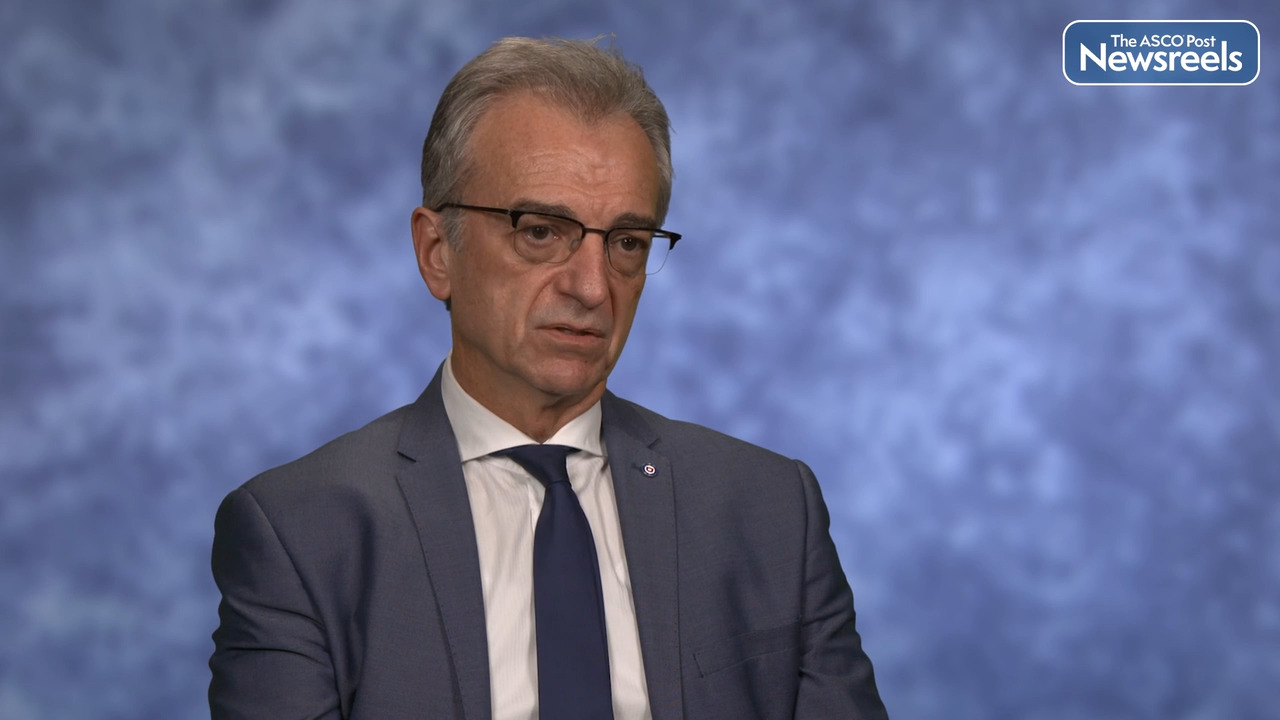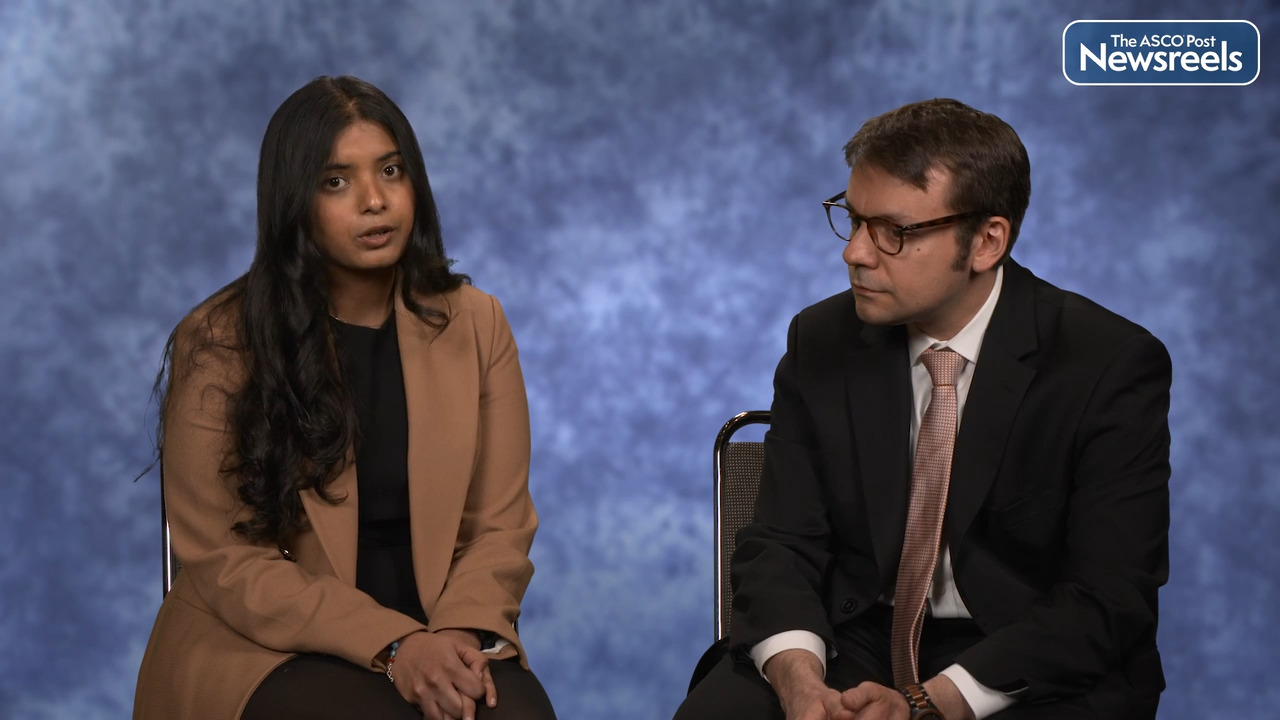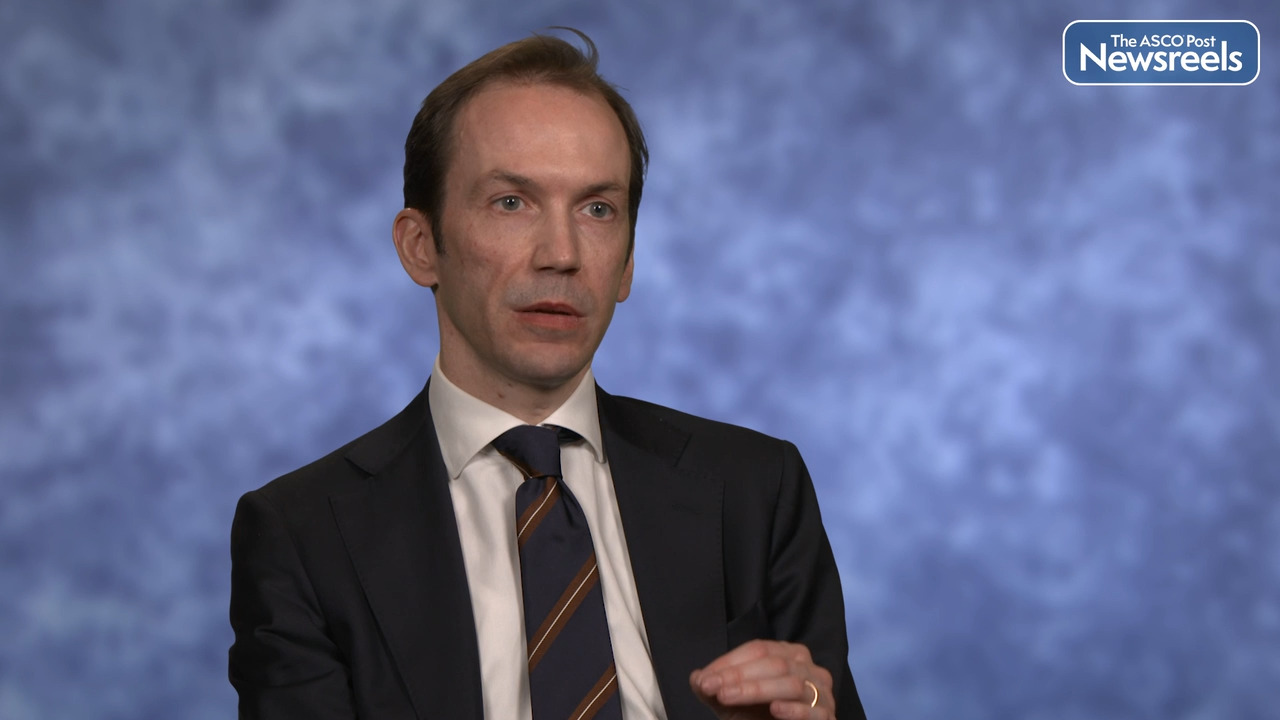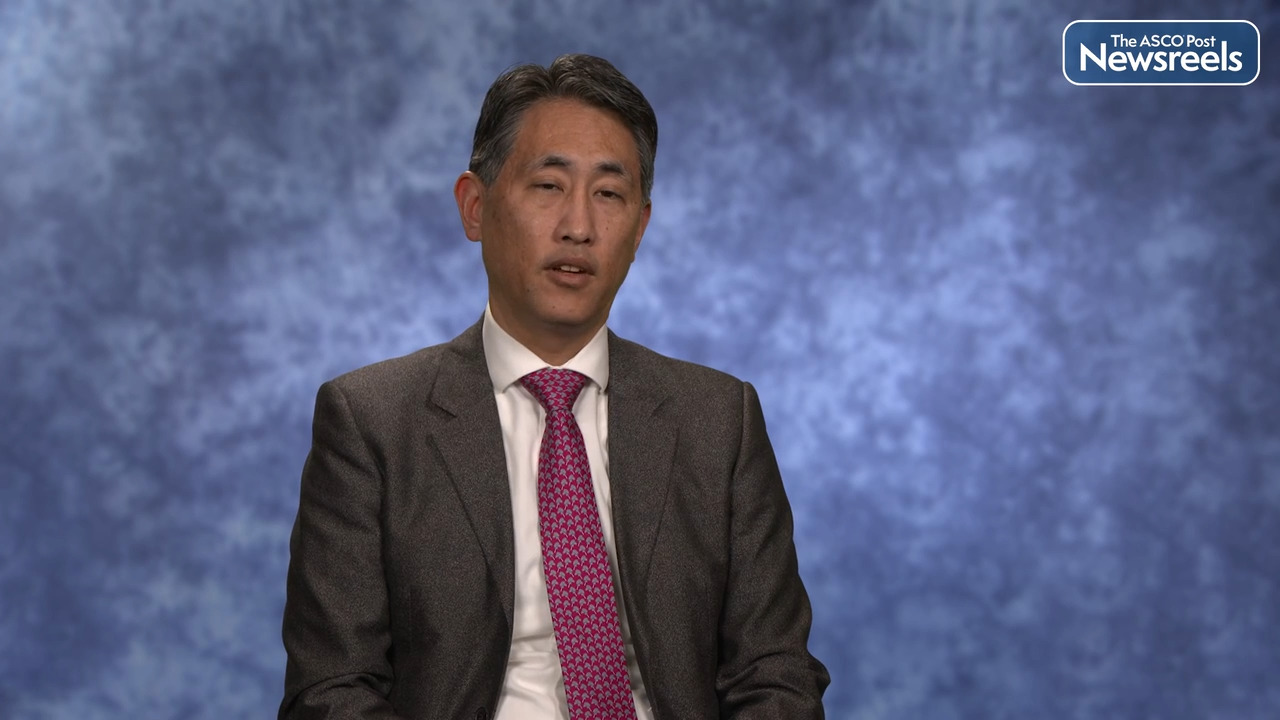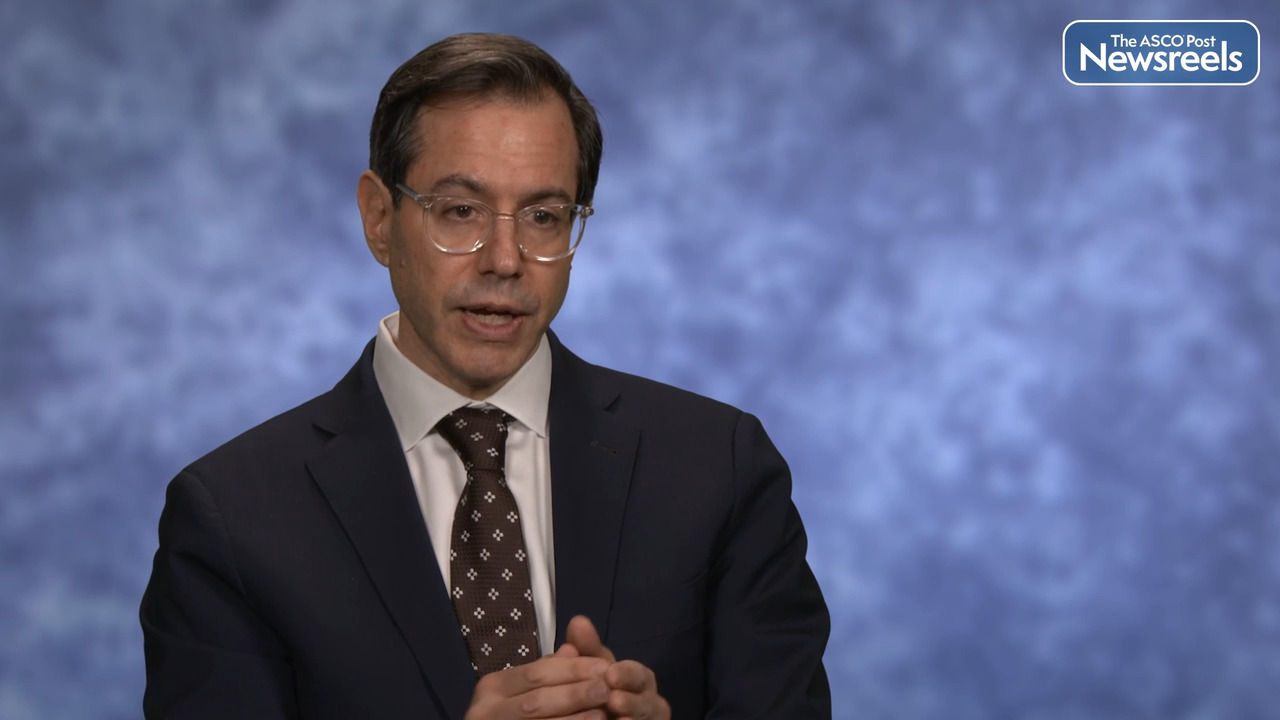Toni K. Choueiri, MD, on Renal Cell Carcinoma: Potential Predictive Biomarkers of Treatment Efficacy
2023 ASCO Genitourinary Cancers Symposium
Toni K. Choueiri, MD, of Dana-Farber Cancer Institute, discusses a biomarker analysis from the phase III CheckMate 9ER trial of nivolumab plus cabozantinib vs sunitinib for the treatment of patients with advanced renal cell carcinoma. The ongoing study aims to identify a predictive biomarker that may potentially guide therapeutic choices. (Abstract 608).
Transcript
Disclaimer: This video transcript has not been proofread or edited and may contain errors.
What we presented was the biomarker analysis. So, we had data on RNA-Seq, on immunohistochemistry. We asked a lot of questions during this study. The first question we asked is if there are any gene signatures that were previously described in RCC with VEGF inhibitor, but PD-L1 inhibitor with nivolumab that's a PD-L1 inhibitor. So are they different? And actually we couldn't validate any of the signature that were described with PD-L1 inhibitors plus VEGF inhibitors such as the bevacizumab atezolizumab from emotion 151 or from JAVELIN Renal 101 with axitinib and avelumab. But of course this is a PD-L1 inhibitor, so we weren't able to validate that. But we actually found some hallmark gene sets and some individual genes associated with progression-free survival. And that started us to characterize the tumor microenvironment of the responders to PD-L1 plus VEGF inhibitor better.
We also looked at immunohistochemistry, specifically at CDAT cell, at PD-L1 and at c-MET looking at different cutoff and definitions. And also we couldn't find anything that is predictive for the combination versus single agent sunitinib. The only thing that came up, and this was not surprising, is that some prognostic markers, so for example, in sunitinib treated patient PD-L1 positivity is associated with worse outcome. We knew that. This is not new at all and nivolumab, cabozantinib resulted in better PFS regardless. Same thing with MET, the membrane CT, c-Met expression was not associated with much, but the cytoplasmic c-Met was associated with worse prognosis. So this was not predictive. Overall in term of next step and what that means that we continue to try to identify predictive biomarkers, probably the next step using a composite model for nivolumab, cabozantinib efficacy. But it seems all these biomarker we identify, they may be specific to a drug or a combination rather than class of agents such as VEGF and PD-1, PD-L1 inhibitor.
The ASCO Post Staff
Aristotelis Bamias, MD, of the National and Kapodistrian University of Athens, discusses results from the phase III IMvigor130 study, which suggest that atezolizumab monotherapy continues to show better tolerability vs chemotherapy for patients with untreated locally advanced or metastatic urothelial carcinoma. (Abstract LBA441).
The ASCO Post Staff
Vadim S. Koshkin, MD, and Tanya Jindal, BS, BA, both of the University of California, San Francisco, Helen Diller Family Comprehensive Cancer Center, discuss results from the retrospective UNITE study of biomarkers of response to the antibody-drug conjugate enfortumab vedotin-ejfv in patients with advanced urothelial carcinoma. Enfortumab vedotin is used widely in treatment-refractory disease, but there have been limited data available on biomarkers that may predict outcomes with this treatment. The UNITE study has now identified several potential biomarkers that need to be validated to help inform clinical decision-making and therapy sequencing. (Abstract 450).
The ASCO Post Staff
Andrea Necchi, MD, of Italy’s Vita-Salute San Raffaele University and the IRCCS San Raffaele Hospital and Scientific Institute, discusses new data from the KEYNOTE-057 trial on a novel systemic therapy for papillary high-risk non–muscle-invasive bladder cancer. The findings suggest that patients whose disease does not respond to bacillus Calmette-Guérin or who declined or were ineligible for a radical cystectomy may benefit from pembrolizumab monotherapy. (Abstract LBA442).
The ASCO Post Staff
Scott T. Tagawa, MD, of Weill Cornell Medicine, NewYork-Presbyterian Hospital, discusses study results showing that, the anti-PSMA (prostate-specific membrane antigen) monoclonal antibody J591 with ketoconazole and hydrocortisone, when radiolabeled with lutetium-177, leads to improved 18-month metastasis-free survival vs radiolabeling with indium-111 in patients with nonmetastatic (M0) castration-resistant prostate cancer. This supports the development of anti-PSMA radioimmunotherapy, although the optimal radionuclide and targeting agent are unknown. (Abstract LBA21).
The ASCO Post Staff
Matt D. Galsky, MD, of the Icahn School of Medicine at Mount Sinai and Tisch Cancer Institute, discusses results from CheckMate 274, which investigated nivolumab compared with placebo in patients with bladder or upper urinary tract cancer, following radical surgery to remove invasive disease. (Abstract LBA443).
